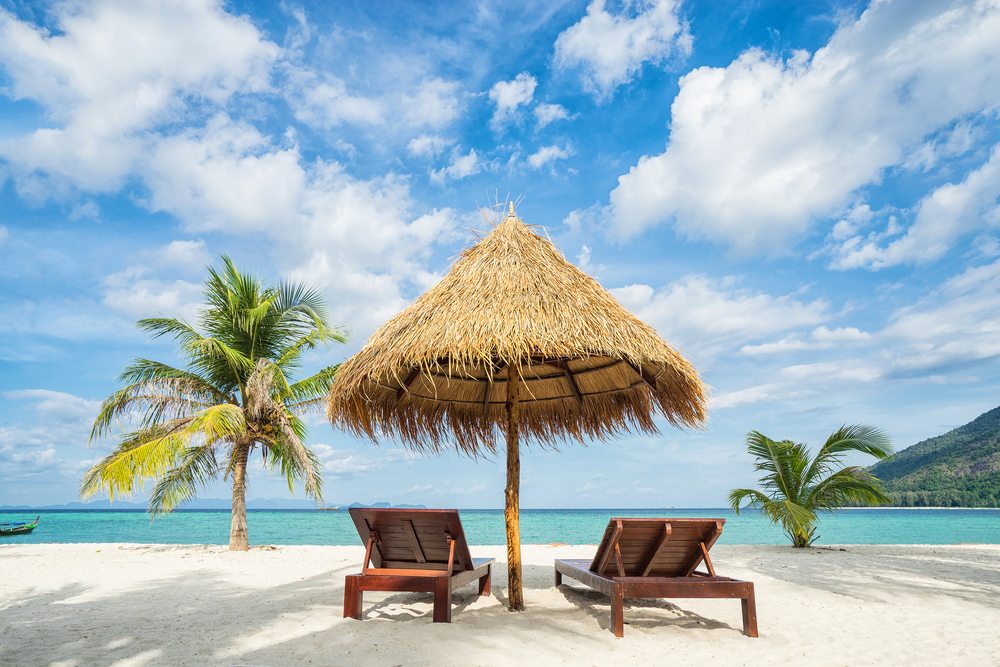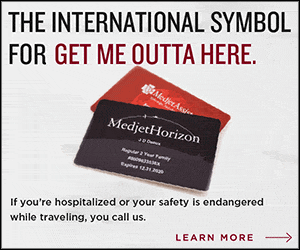The New Travel Checklist
 A little planning goes a long way to making your trip safe and relaxing.
A little planning goes a long way to making your trip safe and relaxing. Vaccine or no vaccine, the coronavirus pandemic will affect how we travel for a long time to come. New protocols mean that, to prepare smartly and safely for a big trip, there are new tasks to attend to, new questions to ask, and a whole new packing list.
So we’ve compiled a checklist of important items to address long before heading to the airport.
To Do:
- Check the entry requirements and restrictions for all destinations on your itinerary, even if you’re merely transiting through them. Consult our lists of the Countries That Are Open to U.S. Travelers and How to Get In and Every State’s Coronavirus and Travel Information.
- Complete any forms or paperwork required by your destination, and download any required apps. These could include an entry form, contact tracing information, or health affirmations. Hawaii, for example, requires that you fill out an “online safe travels form.”
- Get a Covid test—which you can now do quickly and easily by mail—for your own peace of mind, even if it’s not mandated by the destination. By getting tested as close as possible to your departure date and getting a negative result, you lessen the chance that you might unknowingly spread the virus. Proof of your negative status can also be useful just in case the rules change at your location, or a company or hotel decides they want it, or some other emergency happens. Here’s how to get a fast Covid test, with results reliably delivered shortly before your travel date.
- Make a plan to get tested at the end of your trip. As of December 6, 2021, all travelers entering the U.S. via air—regardless of vaccination status or citizenship—must show a negative Covid test taken within one day of their departure. There are self-test kits that you can pack in your luggage, or your trip planner can arrange for an in-person test at your destination.
- Consider self-isolating for 14 days before you travel. It’s another way to minimize the chance of unknowingly spreading the virus. Of course, you might live in a place that requires quarantining for 14 days after your return—as these states do—to avoid potentially bringing the virus back to your home community.
- Make sure your passport is valid for at least three or six months past your travel date (depending on the country’s rules). If you need to renew it, do it now; there are delays.
- If you are making a large non-refundable advance payment for your trip, research travel insurance—including medical evacuation coverage and Cancel For Any Reason options—before or at the time you book. That’s because you need to purchase your policy very soon after making your first trip payment: Insurance that includes the Cancel For Any Reason option and coverage for preexisting medical conditions requires purchase within 21 days of your first trip payment (or deposit). Most travel insurance policies were written before the pandemic and thus are not an ideal fit for pandemic travel, so your research may be time-consuming. Which is just one reason why it pays to…
- Book through a vetted and reviewed Trusted Travel Expert from Wendy’s WOW List. These are the destination experts and local fixers who know everything you don’t about what’s really happening where you’re headed. They can ensure you will get the up-to-date guidance and on-the-ground assistance you need. They will also assure you end up with the safest, smartest hotel choices. If you’re not certain which trip-planning specialist is right for your trip, or you’re not even sure where you’d like to go, talk to us directly via Ask Wendy and get a personalized recommendation.
To Ask:
- Rules and requirements are changing quickly nowadays—they may even change while you are en route—so ask your WOW List trip designer what your contingency plans should be. What are the most likely changes to occur at your destination, and how might your plans change as a result? Know your Plan B.
- Share your specific concerns about Covid-era travel with your WOW List trip designer because he or she will have solutions you have not thought of. Ask, for instance, about hygiene and social-distancing protocols at hotels; how private vehicles are made safe; how museums, monuments, and restaurants are operating, etc.
- Get the details of your trip planner’s cancellation and refund policy in writing. You’ll want to understand how you are protected, and policies are more flexible than they were pre-pandemic.
- As your travel date approaches, ask your airline how full your flight is. You might want to change to a less full flight (which often can be done for no fee). Here’s how to choose a smart seat on the plane.
To Pack/Carry:
- Proof of Covid-19 test results (even if not specifically required by the destination, it’s smart to carry at all times).
- Masks. And, since cloth masks should be washed often, travel-size packets of Woolite or detergent for hand-washing them at night in your hotel-room sink.
- Gloves. Try to avoid airline bathrooms; when you must use them, wear gloves. Keep extra pairs of gloves in your day bag for any situations that may arise.
- Sanitizer and wipes. The TSA allows air travelers to bring 12 ounces in carry-ons now. It’s helpful to pack smaller bottles also, to carry with you in your day bag at your destination, or in case international airports have different liquid allowances.
- Face Shield for the flight.
- Snacks. Airlines vary in what food they’re now providing in flight, so be prepared with your own favorites.
- Comfort accessories, such as a blanket, pillow, and sweater for your flight. The flight you’re on might not offer pillows or blankets, even for sale. And if you keep the air nozzle turned on above you the whole time to help circulate the air, it might get chilly.
- Passport, travel insurance info, test results, and other travel documents. Print everything out, and keep back-up copies securely in the cloud or on your phone.








One valuable thing to do for peace of mind and understanding true risks are to do what Richard Feynman always said he does (if you don’t know him, he is probably the most intelligent person ever to have lived, including Isaac Newton) — do the math yourself. The metrics in the news are misleading. They give total cases and deaths. Calculate % based on total population. Guess what? The “hot spots” suddenly aren’t so “hot” most of the time; they are the same as everywhere else. Population statistics are proving that the trend line for the virus over time is almost exactly the same in every political jurisdiction (national and US state), regardless of measures put in place. And when in doubt, email “study” authors for their data and methodology. Guess what? Most won’t give it – why? Because they aren’t valid studies. The panic is worst than the pandemic. That said, taking steps to be comfortable to travel is important. If we don’t travel, the industry doesn’t recover and then we won’t have many of the travel opportunities we previously had. “Young healthies” are driving current infection increases. If you’re in an “at risk” group, stay away from young healthies as much as you can because (remember when you were that age?) they really don’t care and plan to live their lives. I hope everyone else figures out a way to do the same using real data, critical thinking skills, and sound judgment. If you’re afraid, please don’t go to places that “scare” you. Take care of yourself; let everyone else take care of themselves. Get the planes back in the air and normal live bar to the hospitality industry.